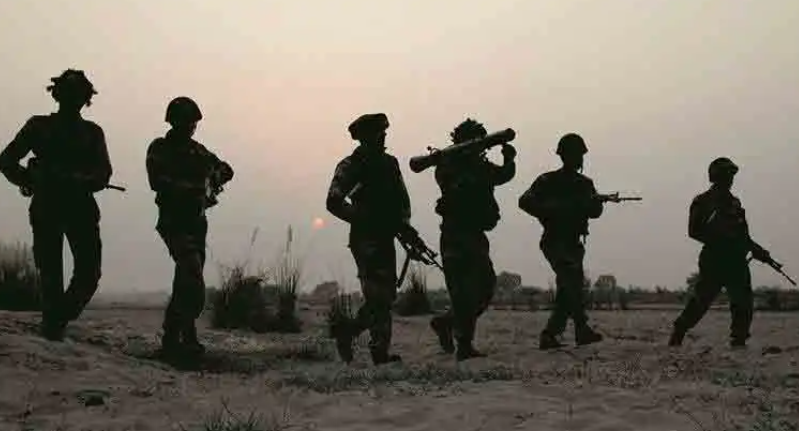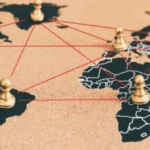In 1999, amidst the world battling the chaos of the post-Cold War era, NATO’s military intervention in Kosovo was viewed less as a humanitarian intervention and more as an assault on sovereignty. It invoked the need to legalize military interventions when a particular state is unwilling or unable to defend itself against adversaries or is itself responsible for mass atrocities against its population. The international community widely accepted the notion of Responsibility to Protect (R2P), which was institutionalised into a legal framework at the 2005 World Summit.
Two decades later, the R2P principle has only been exploited as a tool to justify foreign military adventurism in the name of humanitarianism, as evidenced by the examples of Iraq, Afghanistan, and countless other states. However, with the US grand strategy now shifted from military interventionism to strategic competition with China and Russia, the R2P has been replaced by a more unilateral, self-serving narrative: the right to self-defence. While the rhetoric has evolved, the underlying practice of using legal justifications to wage war remains largely unchanged.
The notion of self-defence derives from Article 51 of the UN Charter, which allows states to act unilaterally, outside the parameters of collective security, albeit under certain limitations. What we are witnessing today is that several middle and smaller powers are using the argument of self-defence not as a last resort, but as a pre-emptive tool against anticipated threats that may or may not be imminent. The true objectives remain asserting strategic dominance and securing political and economic gains.
Israel’s genocide against Gaza and broader Israel-Iran tensions have raised debates on the exploitation of the inherent right to self-defence. Despite the magnitude of civilian casualties and destruction, Israel continues to propagate its military operations in Gaza as self-defence against Hamas. Israel has received open criticism for this stance from the UN, some of its close partners in the EU, and several human rights and political groups in the US, but blinded by power, it remains undeterred.
Similarly, Israel justified its strikes on Iranian nuclear facilities as preventive self-defence against an imminent threat based on the assumption that if Iran becomes a nuclear power, it poses an existential threat to Israel. The idea of preventive self-defence emanated from the Bush Doctrine and has accompanied the US war on terror efforts throughout. Even today, the US maintains its long-standing position of preventive self-defence, documented in the Department of Defense Law of War Manual, and was also reflected in the justifications the Trump administration provided for an airstrike on Iran in 2020 that killed General Qasem Soleimani. India, too, attempted to frame its recent airstrikes on civilian sites in Pakistan as self-defence against alleged terrorist outfits.
The use, or rather abuse, of self-defence as a legal umbrella has serious implications. First, it has further raised uncertainty regarding what constitutes an ‘armed attack’, thereby expanding the threshold of acceptable military responses. In most cases, anticipatory or preventive self-defence provides a grey zone to justify aggression. Second, it erodes the legitimacy of the Security Council, which under Article 51, allows for unilateral self-defence only until it can act in the best interest of all parties and maintain international peace and security. Israel’s unilateral actions against Gaza under the pretext of preventive self-defence contradict this ethos. Above in view, it is now widely believed that international organisations are becoming increasingly irrelevant when it comes to resolving global issues.
Although Pakistan too invoked the right to self-defence during Operation Bunyan um Marsus against Indian escalation in May 2025, the country remained well within the prescribed limits set by the international norms. Against this backdrop, Pakistan can and must advocate for clearer boundaries surrounding the legal discourse of self-defence. Having assumed the UNSC presidency for July 2025, Pakistan can emphasise the need for institutional reforms to stop unaccounted use of military force. It can also mobilise platforms like the UN Human Rights Council to uncover the loopholes which allow the exploitation of the principles of humanitarianism and self-defence for power projection and military pursuits.
Ultimately, however, it falls upon the international community to prevent unilateralism cloaked as self-defence from becoming the new normal. There is a need to revisit the limits of self-defence under international law, reassert the authority of the international institutions, and restore the credibility of humanitarian principles. This is a challenging task given the UN’s eroding legitimacy as a conciliator, as states continue to override its authority. All in all, as R2P evolves into self-defence, the emerging global order now hinges on a more realist interpretation of sovereignty and security. While the media has done a great job in exposing the stark realities of these apparent legal justifications, awareness alone is not enough to end the brutalities. It is high time that the world takes concrete action.
By: Maheera Munir
Research Assistant, Centre for Aerospace and Security Studies (CASS)
Lahore, Pakistan – She can be reached at [email protected]







